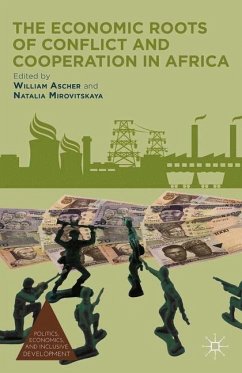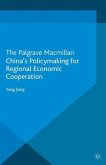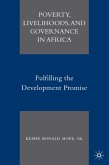This book combines overviews of the nature and causes of inter-group violence in North Africa and sub-Saharan Africa with a collection of country case studies. Both the overview chapter and the case studies trace how economic policy initiatives, and consequent changes in the roles and statuses of various groups, shape conflict or cooperation.
"A large literature on conflict and violence in Africa now exists, but there is very little that examines the linkages between development strategy and practice and violence. This volume is an important addition to current debates about Africa."
- Thomas M. Callaghy, University of Pennsylvania, USA
'A 'must-read' for development professionals working in Africa, this volume offers a useful and comprehensive framework for identifying the linkages between economic development policies and inter-group relations. Together, the vase studies of 11 countries present a powerful picture of the complex web of factors that contribute to conflict or deter it by way of polices that avoid economic deprivation and social division. The contributors do not shy away from challenges that include land tenure, the role of the state and privatization, and revenue management of extractive industries. I highly recommend this book.'
- Michael R. Curtis, PhD, Senior Technical Advisor, USAID/Africa Bureau
- Thomas M. Callaghy, University of Pennsylvania, USA
'A 'must-read' for development professionals working in Africa, this volume offers a useful and comprehensive framework for identifying the linkages between economic development policies and inter-group relations. Together, the vase studies of 11 countries present a powerful picture of the complex web of factors that contribute to conflict or deter it by way of polices that avoid economic deprivation and social division. The contributors do not shy away from challenges that include land tenure, the role of the state and privatization, and revenue management of extractive industries. I highly recommend this book.'
- Michael R. Curtis, PhD, Senior Technical Advisor, USAID/Africa Bureau








